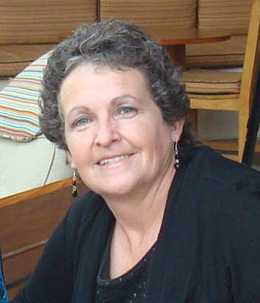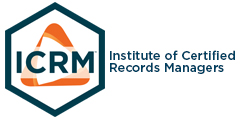Interview with 2021 Mentor of the Year Winner, Deborah Robbins
 Deborah Robbins is the winner of the 2021 Alan Andolsen Mentor of the Year Award. Just after Deb received her award virtually at ICRM’s Annual Business Meeting on December 3rd, I captured her thoughts, advice, and reactions.
Deborah Robbins is the winner of the 2021 Alan Andolsen Mentor of the Year Award. Just after Deb received her award virtually at ICRM’s Annual Business Meeting on December 3rd, I captured her thoughts, advice, and reactions.
NIC: Good afternoon Deb, Congratulations on winning the 2021 ICRM Alan Andolsen Mentor of the Year Award!
DEB: Good afternoon Nic, it’s good to be speaking with you.
NIC: First off, how did it feel to receive the award virtually at ICRM’s Annual Business Meeting?
DEB: Just really exciting and very humbling, when you look at the other nominees and you realize how much work they’ve put in. It is really just an honor and I’m very excited of course and happy for the people who nominated me… I think they wanted it more than I did.
NIC: You have known that you won the award for a month. Was it hard to keep it a secret? How did you like the idea of the virtual handoff to you from the previous winner, Andrew Ysasi?
DEB: It was really hard, because I knew people who would be excited for me. The good thing is I don’t see anyone I mentor at work, so it turned out okay.
NIC: The ICRM Awards Committee held all nominated mentors in high consideration. Being an engaged board member, what are some takeaways you can provide about your fellow nominees?
DEB: Elizabeth Canter and I have worked on the Mentoring Committee the last year and a half. She is good at matching mentor and mentee and at helping others develop their own skills. Her biggest asset is her ability to teach other mentors what they can do best. She is a mentor to mentors and provides valuable resources to them. Arlyce is just as amazing. We have a waiting list for mentors and have people who want mentors, and Arlyce jumps right in. She has developed a lot of her own resources for mentors to use. She has impacted a lot of people which is evident in that many people serving ICRM today are mentees of hers. Intelligent, talented, knowledgeable of our profession, and caring about people, her biggest asset may be finding other people who care about helping others. I hope that I still have her attitude and enduring drive to help after many years of mentoring.
NIC: Who have your mentors been, and which parts of their teaching have stuck with you?
DEB: Actually, I think most of my mentors have not come from a teaching setting. When I earned my CRM, there were no mentors for parts one through five, but I studied with a friend I met through ARMA, Liz Carerra. Liz was always there to welcome me at ARMA meetings and, in many small ways, she was influential in shaping how I relate to and feel about records management.
Another woman who motivated me was Sharon LaPlant. As the president of ICRM, she encouraged me to be a part of the Mentoring Committee. Sharon was the board liaison when the mentoring program was implemented for exam parts one through five. She is the one who encouraged me to create a CRA/CRM study group to test materials and teaching methods. I know at least 100 people could pick Sharon as a mentor in life in general. I can approach her with anything I need, and I wish I could have her calm demeanor.
NIC: How does mentoring help you the most?
DEB: Mentoring keeps me up to date on the newest technology and what is trending in our industry. Someone asking me a question I don’t know helps me to shore up weaknesses. The specific knowledge they have that maybe I don’t have means that both of us grow professionally. Every mentee has done something I have not done. It keeps me on my toes to keep up with them and also challenges me to learn things that are not my specialty. The excitement that new people bring to the profession keeps me encouraged about the value of my own work.
NIC: You have been known to tell your mentees that you hope they will be better mentors than you some day. How does a mentor know s/he is ready, and what advice do you have for an aspiring mentor?
DEB: If you know one thing more than the mentee you’re helping, you can mentor. That’s the truth. You can help them. You can mentor someone barely behind you. You don’t need to be miles ahead. If someone asks you about XYZ, go look it up. There is no magic date about when you will be ready to mentor. No entrance exam necessary. You just need the desire to help people and the willingness to acknowledge gaps you may have in your knowledge. With the heart and passion for helping, you can learn everything else on the fly. The ICRM Mentoring Committee makes it easy for aspiring mentors to test their wings.
The joy you get from helping mentees is incredible. It’s like giving kids presents for Christmas. You don’t care what your presents are… you remember the joy Sharon received when she earned her CRM. That’s the reason I say everyone I mentor should be better than me—I give them my experience and they add their unique experience.
NIC: How do you judge success as a mentor?
I want my mentees to feel supported and feel that they possess the tools they need. Whether they pass or fail an exam is not an indication of success. Things happen in people’s lives. I give mentees everything I know; they carry on from there. I will be their cheerleader. I want them to feel supported regardless of outcome. To how many people can I be a positive impact?
NIC: Have you ever failed, temporarily, as a mentor? This could be by sacrificing something dear to you in your own life or in being unable to keep a promise to a mentee.
DEB: If mentoring were a one-time thing, that would happen. But it’s a relationship.
Failing as a mentor, to me, would be refusing to support or encourage your mentees. There is no downside to mentoring when you have an attitude of helping and encouraging. People I mentor all understand I will do my best, but I can’t take the tests for you. I can give you all the study materials in the world, but if you don’t study you still won’t pass.
If you go into mentoring expecting something beyond satisfaction of helping someone else, you could be disappointed. But I have never had a mentee that I was disappointed in. As far as I know, none of my mentees have been disappointed in my efforts and my enthusiasm.
NIC: Helping others is in your blood. You used to be a basketball coach, so what has kept your focus on mentoring records managers instead of returning to sports and earning a “Coach of the Year” award?
DEB: I already have a coach of the year award. Where I’m at in my life right now, I would love to coach but not on college level (so the paycheck would not be enough). What I can say, though, is that I have played a part in more tests passed than I have played a part in games won in a season. Whether in sports or the RIM/IG world, I enjoy helping people develop the way they want. You share in their success. It’s like being a proud Mom. When anyone in the group succeeds, we should all feel like we contributed.
NIC: For the final question, is there anything you’d like to tell us outside the RIM/IG world?
DEB: There is a huge hole in our industry for an organization that cares about you as an individual. As a member of ICRM, I appreciate how passionate these people are about records management and helping people become professionals. Our members are willing to volunteer hours and hours to do it as well as can be done. My advice:
Be thankful. Be grateful for the people that we have in our lives through this association. They are there for me professionally. They are there for me as support. The more you get involved with the ICRM the more it will happen. You can sit on the fringe and get your certification, but you will miss out on some great relationships. Some lifelong relationships.
NIC: I love it. I am also hoping you can share with us something from outside of RIM/IG!
DEB: Right now (December 2021). The Arizona Suns in basketball were just in the NBA Finals, and the Arizona Cardinals have one of the best record in the NFL. I’m representing the two top teams in sports! Go Big Red and Go Suns!
Ready to give your best? Get in touch with ICRM’s Mentoring Committee at mentor@icrm.org.
Interview By: Nicolas Soares, CRM
